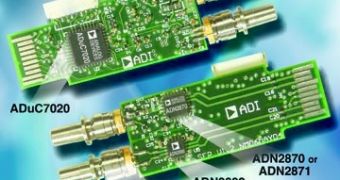The storage networking market has two main contestants right now. On one had, there's the new 8Gbit/s Fibre Channel and on the other hand, we have the iSCSI over 10Gbit/s Ethernet standard. The new Fibre Channel has many advantages over the already retreating 10Gbit/s Fibre Channel that did not support the existing architecture and infrastructure specific for the 1, 2 and 4Gbit/s Fibre Channel systems that were quite popular in the not so distant past. As the latest Fibre Channel effectively doubles the data transportation speed of the 4Gbit/s Fibre Channel systems, it can be used in networks where there are several standards at the same time.
The hardware manufacturing companies Emulex and Qlogic that are specializing in networking storage solutions are promising the first 8Gbit/s Fibre Channel storage networking products to be available soon and in the same formats as the previous versions: switches, host bus adapters (HBAs for short) and those just for a 10 or 20 percent price increase. According to Mike Smith, an Emulex marketing executive, who was cited by the news site TheRegister users will work with the new products just like they are working with the other ones, the only palpable difference being the increased speed: "When customers migrate, they'll experience a seamless transition, leveraging the same drivers and management applications. Our 8Gbit/s products have already achieved OEM design wins on multiple platforms".
"Administrators of infrastructure applications like disk-to-disk replication and vertical business applications like video post-production are already asking for higher performance storage networks," said Enterprise Strategy Group analyst Brian Garrett. "The backwards compatibility of 8Gbit/s Fibre Channel will be warmly embraced in data centres, video production houses, and other application environments where performance counts". Even after the introduction of the new Fibre Channel standard, the older standards are under a lot of pressure from the more easier to use iSCSI standard that needs a lot less infrastructure and can be more easily and cheaply extended over LANS and WANS.

 14 DAY TRIAL //
14 DAY TRIAL //